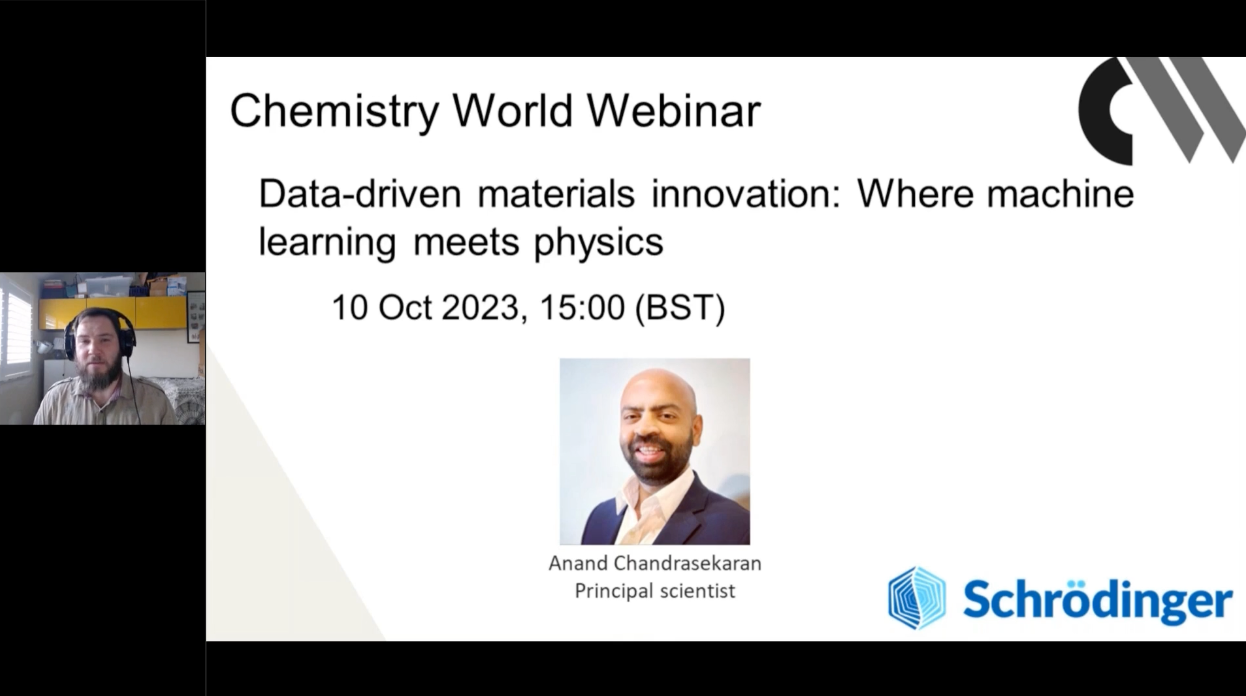
OCT 10, 2023
Data-driven materials innovation: Where machine learning meets physics
Abstract:
The surge of machine learning (ML) in materials science and chemistry has been driven by advancements in deep learning methodologies. While many industrial scientists aspire to transition to a data-centric and AI-guided design paradigm, companies often deal with limited datasets and complex materials that require customised featurisation techniques. Moreover, commonly used ML techniques often grapple with issues of explainability and extrapolation into unexplored chemical spaces.
In this webinar, we demonstrate how Schrödinger’s tools can help overcome these common challenges by using a combination of physics-based simulation data, enterprise informatics, and chemistry-informed ML. We highlight how this synergistic approach can transform materials innovation across a wide-range of technology verticals. Specifically, we will highlight case studies in the following areas:
- Using molecular dynamics simulations to generate descriptors that enhance the accuracy of ML models for viscosity predictions
- Developing explainable ML models to predict the ionic conductivity of Li-ion battery electrolytes
- Augmenting the performance of ML models for predicting properties such as absorption and emission wavelengths, fluorescence lifetime, and extinction coefficients of organic electronics using descriptors rooted in density functional theory
This integrated approach signifies a new frontier in materials science and chemistry, combining the strengths of ML and physics-informed methods.

Anand Chandrasekaran
Senior Principal Scientist